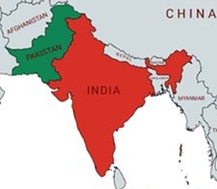
 Jan.10 (DPnet).– Pakistan is home to about 4 million Christians, 2.5 Protestant, 1.3 Catholic, and 0.2 other Christian communities. The Constitution of Pakistan, as well as other laws, place restrictions on religious freedom. Laws against blasphemy subject individuals to death sentences for “defiling Prophet Muhammad,” to life imprisonment for “defiling, damaging, or desecrating the Quran,” as well as to prison sentences for “insulting another’s religious feelings.”
Jan.10 (DPnet).– Pakistan is home to about 4 million Christians, 2.5 Protestant, 1.3 Catholic, and 0.2 other Christian communities. The Constitution of Pakistan, as well as other laws, place restrictions on religious freedom. Laws against blasphemy subject individuals to death sentences for “defiling Prophet Muhammad,” to life imprisonment for “defiling, damaging, or desecrating the Quran,” as well as to prison sentences for “insulting another’s religious feelings.”
Christians, including Catholics, face significant persecution in Pakistan due to religiously motivated violence, discrimination, and the misuse of strict blasphemy laws. This persecution results in targeted attacks on churches, forced conversions —especially of women and girls— societal marginalization, and pervasive fear. These issues are exacerbated by religious extremism and vigilante justice, leaving Christians as vulnerable minorities despite existing constitutional protections. 
Organizations like the Center for the Study of Organized Hate (CSOH) or the Commission on International Religious Freedom (USCIRF) have repeatedly designated Pakistan as a "Country of Particular Concern" (CPC) due to its severe religious freedom violations, including those affecting Christians.
- Hits: 103
 los Consejos Comunitarios de Naturpaz en Las Tunas, Yoani Rodríguez Montero.
los Consejos Comunitarios de Naturpaz en Las Tunas, Yoani Rodríguez Montero.



